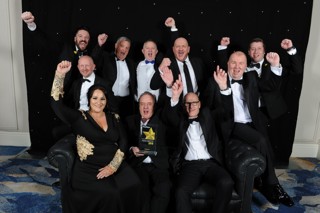A myth-busting plug-in hybrid trial and a holistic approach to driving down emissions have helped ALD Automotive slash CO2 and travel further for less.
Over a six-month period, the company achieved a 24% uplift in mpg performance and cut the average CO2 emissions of its 124-car in-house fleet by 28%, from 103g/km to 74g/km.
A real-world PHEV trial involved 20 ALD company car drivers, chosen because of their unique driving profiles.
They swapped petrol and diesel cars for Mercedes C350e PHEVs, fitted with telematics devices to accurately monitor performance.
The PHEV fleet managed an overall average of 54.48mpg, which rose to 56.44mpg after the first month. The best recorded mpg was 110.54 by a driver averaging 7,000 miles per annum (mpa) resulting in an annual fleet saving of £200.
The highest mileage recorded was 14,000mpa, delivering 84.67mpg and resulting in an annual fuel saving of £500.
Across the final 68,000 miles of the 145,000 miles covered during the trial, more than 50% of journeys were completed in ‘engine off mode’ in which the hybrid’s petrol engine was disengaged.
ALD calculated a total reduction in CO2 emissions of 14.8 tonnes across the PHEV fleet versus the diesel equivalent.
It also concluded that drivers of a Mercedes-Benz C220d 2.1 Sport Premium Auto (diesel) could make tax savings of around £6,000 in benefit-in-kind (BIK) by switching to the comparable C350e PHEV.
Meanwhile, running these vehicles for 15,000 miles a year for either three or four years, it found it could save up to £2,000 for every vehicle replaced by a PHEV version.
The success of the trial, and its myth-busting effect, led to a dramatic rise in employees ordering plug-in hybrids, up from 13% in 2017 to 67%, last year.
To support the switch to PHEVs, ALD doubled the number of EV charge points at its Bristol head office, from six to 12, and fitted six each at its Innovation and Development Centre and Milton Keynes offices.
Leader boards were introduced to record mpg and the maximum distance achieved on electric-only power. Drivers charged vehicles more regularly and applied more efficient driving techniques.
Finalists: Dundee City Council, Leeds City Council, London Borough of Hackney, OVO Energy
Award sponsored by BMW Group (UK)


















Login to comment
Comments
No comments have been made yet.